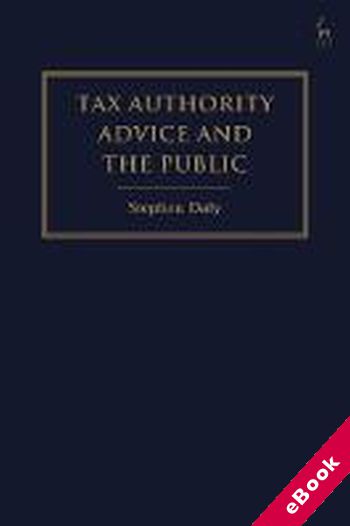
The device(s) you use to access the eBook content must be authorized with an Adobe ID before you download the product otherwise it will fail to register correctly.
For further information see https://www.wildy.com/ebook-formats
Once the order is confirmed an automated e-mail will be sent to you to allow you to download the eBook.
All eBooks are supplied firm sale and cannot be returned. If you believe there is a fault with your eBook then contact us on ebooks@wildy.com and we will help in resolving the issue. This does not affect your statutory rights.
There is now almost universal acceptance that tax law is overly complex and indeterminate. And yet, there has to date been no comprehensive assessment of the role of the tax authority in the current arrangement. If the legislation and case law offer few immediate answers to the taxpayer, then the role of Her Majesty's Revenue & Customs (HMRC) in advising taxpayers becomes more apparent. This monograph contends that the provision of advice by HMRC is desirable by virtue of the rule of law and it follows that any such advice should be correct, clear, accessible and reliable. Additionally, there should exist some means of scrutinising the advice in order to check that it satisfies these criteria. The book explores this view of HMRC's role in tax collection. It explains the deficiencies in the current system in this light, highlighting the pitfalls for taxpayers and practitioners as well as the potential remedies. Finally, the book assesses potential reforms which could be adopted in order to alleviate existing problems. A timely and ambitious work, this book is essential reading for practitioners and academics interested in the interaction between tax administration and public law.